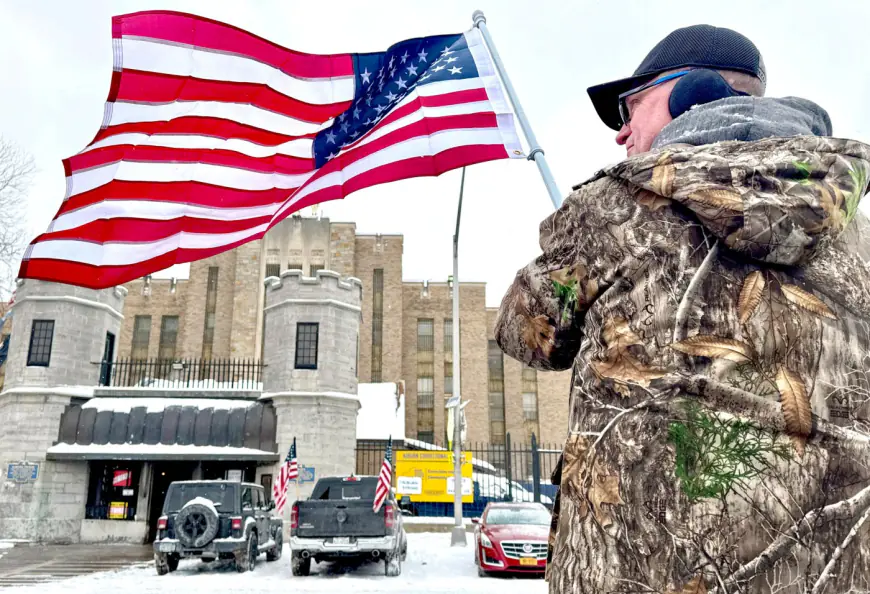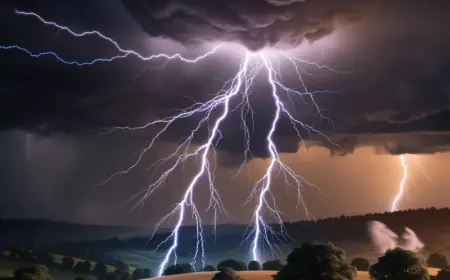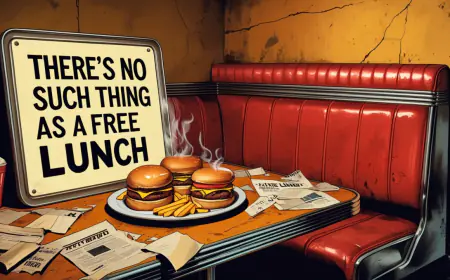NY State prison guards strike is personal in town near Canadian border
The strike, now involving at least 30 prisons across the state, is rooted in anger over limits on solitary confinement, relentless work hours and forced overtime.

In Malone, N.Y., a town of 12,000 with three state prisons 20 miles from the Canadian border, the five-day-old wildcat strike by prison guards leading to the deployment of the National Guard has been personal.
One sign of that is the decision by Amanda Coryea’s husband, a veteran sergeant at Upstate Correctional Facility outside Malone, to suspend his role as a union delegate to walk the picket line this week with dozens of fellow officers.
“He decided if his guys were not going to be in the prison, he wanted to be with his guys,” Coryea said. “This is about safety for everyone, including the inmates. These guys want to go home,” she said of the officers. “They don’t want to keep missing family events because there’s not enough people running the prison.”
Coryea shared a photo taken Thursday by Whitney Dupra, the wife of another officer, of ranks of striking officers in civilian clothes marching along a snow-covered street with a Blue Lives Matter flag at the front.

The strike that started Monday and then spread to at least 30 corrections facilities across the state is rooted in anger over limits placed on inmate discipline under the HALT Act, limiting solitary confinement, relentless work hours and forced overtime amid a staffing crisis, and a move Feb. 10 to further cut staff by the current Corrections Commissioner Daniel Martuscello, striking correction officers told The News.
They deny it has to do with the indictments Thursday of 10 officers in the fatal Dec. 9 beating of inmate Roberts Brooks and attempted cover-up at Marcy Correctional Facility, including six on murder charges.
Whether staff are being injured at a high rate as a result of HALT, seems to be a matter of interpretation. Out of 5,278 alleged inmate-on-inmate and inmate-on-staff assaults from September through November, 4,433 or 84% involved no injuries and just 57 or 1% involved injuries that required more than minimal medical treatment, state figures show.
For HALT supporters, the safety claims ring hollow. Jerome Wright, an activist who spent a decade in solitary confinement while in prison, described the strike as another effort to undermine a law overwhelmingly approved by the state Legislature.
“They are carrying out an illegal work stoppage that is endangering tens of thousands of people’s health and even lives,” he said. “How can they claim concerns about safety when guards are the ones brutally beating, sexually assaulting and even killing people on camera?”
On Thursday, Martuscello said he was rescinding the memo that heralded new staff cuts, and moved to pay staff who return to work 2.5 times the overtime rate, and that he was invoking a clause in HALT to temporarily suspend elements of the law.
The temporary suspension of parts of the law has already been slammed by a HALT Act sponsor, state Sen. Julia Salazer, who said she has routinely observed “failures to implement the law” and called for no changes to HALT.
The correction union’s executive board, noting the offer doesn’t address all the concerns, wrote in a memo late Thursday, “We believe this is a first step toward the operational changes that need to be made.”

On Friday, Martin Scheinman, the independent mediator who will try to help resolve the standoff, said talks would start Monday.
It’s been 45 years since the last prison strike in 1979, which lasted 17 days and triggered the deployment of 9,000 National Guard members. That strike ended through negotiations after the state threatened to invoke the Taylor Law and began fining officers.
Ironically, in the midst of the ’79 strike, inmate Theodore Payton told the Associated Press, “For the first time, we’re being treated humanely. The National Guard are interested and kind.”
Faced with similar issues, New York City’s correction officers on Rikers Island, by comparison, never went on strike, even during the height of the staffing crisis of 2021 and 2022.
However, there were allegations that the sick-out at that time was, in truth, a job action. Mayor de Blasio actually mounted a short-lived lawsuit, making that claim in the fall of 2021. The union quickly denied the charges.
Following Brooks’ death, Hochul allocated another $400 million for cameras in the prisons and boosted staffing in the office that investigates misconduct, plus suspended 18 staffers and moved to fire them.
But one area the governor has not addressed is the secrecy of the disciplinary process. Under the current collective bargaining rules, the public cannot sit in on hearings of officers accused of misconduct or even learn their date or location.
On Feb. 3, a formerly incarcerated journalist and activist named JB Nicholas filed a lawsuit in state court asking a judge to declare the hearings in the Brooks case open to the public.
“DOCCS’ employee disciplinary system has been roundly criticized as toothless and ineffective,” Nicholas wrote. “The public has a legal right to witness in-person employee disciplinary hearings including [those] it claims to be holding related to the killing of Robert Brooks.”
Judge Peter Lynch ordered the state to appear in court Feb. 28. On Thursday, the state asked for a month-long extension.
Back in Malone, a meeting was quietly held Thursday night between a state prison official and striking officers outside Bare Hill, a correctional facility that drew attention earlier that day when officers walked out and four emergency response teams were called in.
“There was a promise to talk, we’ll make a committee,” said one officer who attended the meeting. “What I want is guarantees that we will have changes.”
What's Your Reaction?









































































































